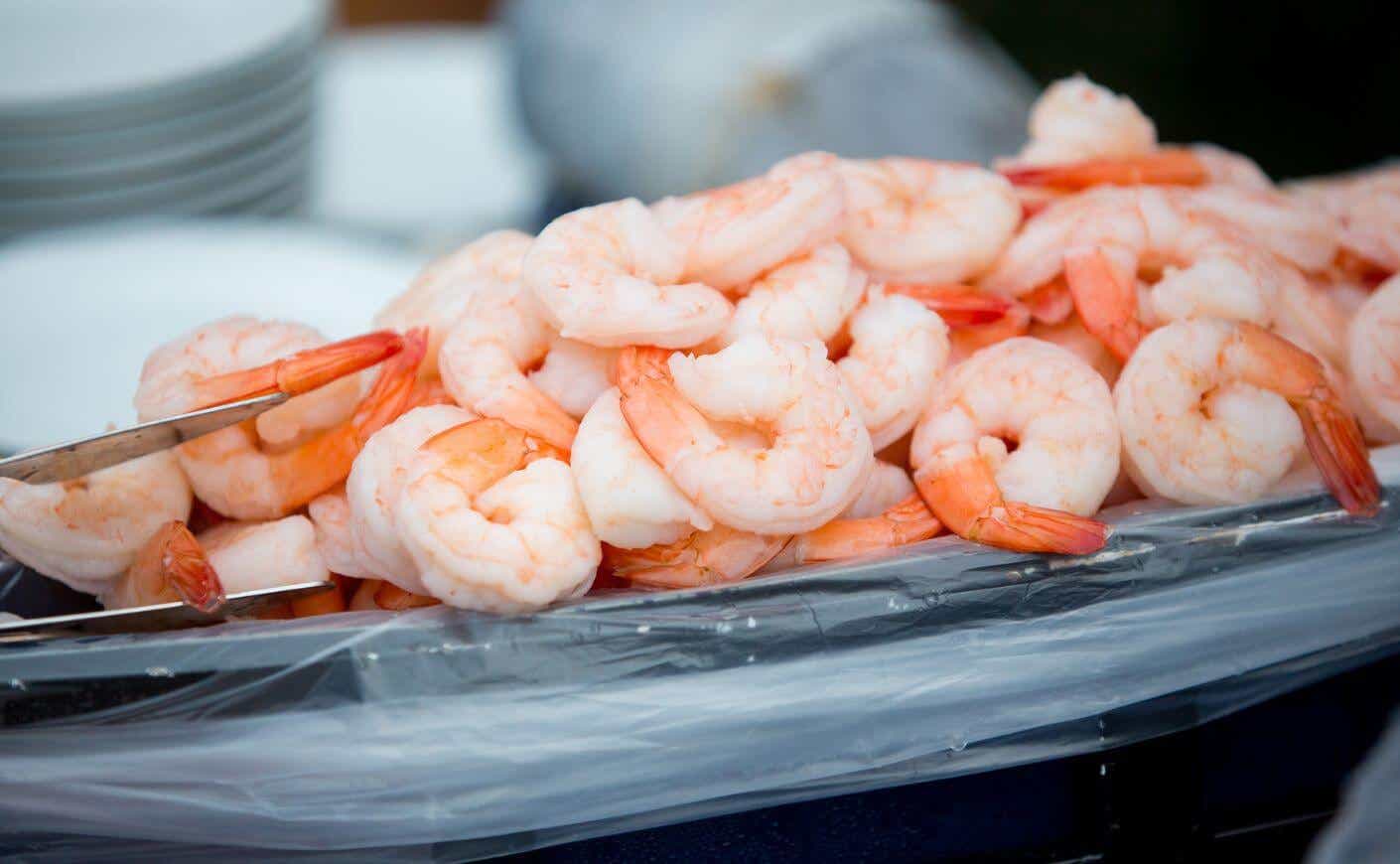The Food and Drug Administration has advised the public not to sell, eat, or serve a brand of frozen shrimp sold at Walmart stores in 13 states because it may have been exposed to radioactive material.
On Aug. 19, the FDA warned in a statement that Walmart should recall three separate lots of Great Value brand frozen raw shrimp processed by the Indonesian company PT. Bahari Makmur Sejati; the shrimp may have been contaminated with the radioactive isotope Cesium-137, or Cs-137. The alert came after the FDA found Cs-137 in imported frozen shrimp, but the shellfish “did not enter U.S. commerce.”
We’ll dive into the details on this seafood snafu — and where customers should be on high alert — below.
Where did the FDA detect Cesium-137 in shrimp?
According to the FDA, the U.S. Customs & Border Protection (CBP) detected Cs-137 in shipping containers at four separate U.S. ports located in Los Angeles, Houston, Savannah, and Miami. The FDA collected multiple samples and results confirmed the presence of Cesium-137 in one sample of the seafood. The containers that alerted for Cs-137 or tested positive for Cs-137 have “been denied entry into the country.”
The FDA states that “the product appears to have been prepared, packed, or held under insanitary conditions whereby it may have become contaminated with Cs-137 and may pose a safety concern.”
But if the shrimp didn’t enter the country, why should consumers be concerned?
The FDA hasn’t ruled out the possibility that other shipments have been exposed to the isotope: “Walmart has received implicated raw frozen shrimp, imported after the date of first detection.” While these shipments didn’t trigger additional alerts during screening, they’ve still been flagged for concern.
If you’ve recently purchased shrimp from one of the affected lots, the FDA recommends throwing the product out. The seafood was sold in Walmart stores in Alabama, Arkansas, Florida, Georgia, Kentucky, Louisiana, Missouri, Mississippi, Ohio, Oklahoma, Pennsylvania, Texas, and West Virginia.
What is Cesium-137?
Cs-137 is a radioisotope of cesium; it’s man-made through nuclear reactions and is “widespread worldwide,” the FDA said. Trace amounts can be found in the environment — in our soil, food, and air. According to the Centers for Disease Control and Prevention, Cs-137 is also used in medical sterilization and medical radiation therapy devices for treating cancer.
“People are exposed to some Cs-137 every day,” the CDC states.
That said, Cs-137 is dangerous in large, concentrated amounts. The FDA concludes that the level of Cs-137 detected in the shrimp “could represent a potential health concern for those exposed to this level of Cs-137 from consumption of the shrimp over an extended period of time combined with radiation that exists in the environment and from other sources such as medical procedures.”
What could happen if you consumed a dangerous amount of the isotope? The FDA warns that longer term, repeated low dose exposure can result in “an elevated risk of cancer, resulting from damage to DNA within living cells of the body.” According to the CDC, exposure can also cause “burns, acute radiation sickness, and even death.”
The FDA’s investigation is ongoing; the agency is currently working with Indonesian seafood regulatory authorities to investigate the source of the contamination. In the meantime, the FDA has temporarily restricted imports from PT. Bahari Makmur Sejati.









